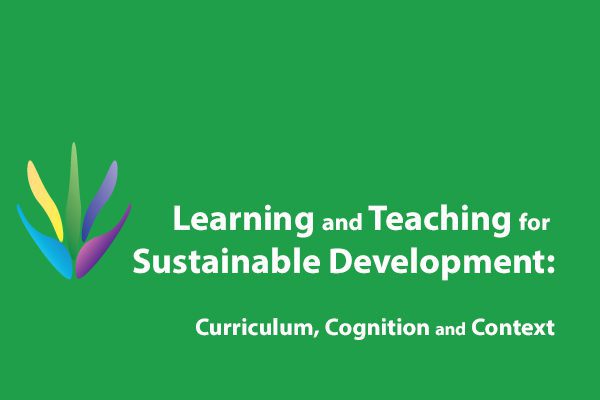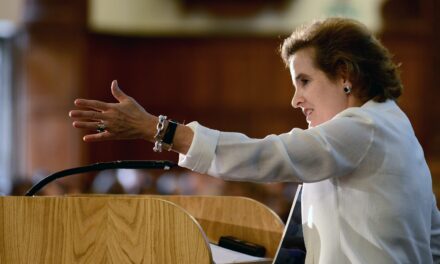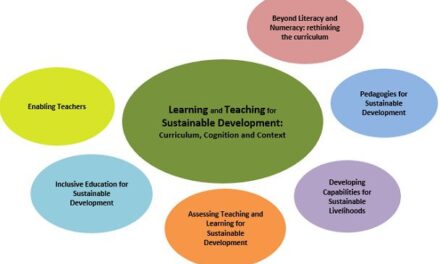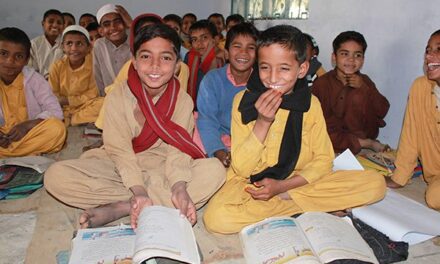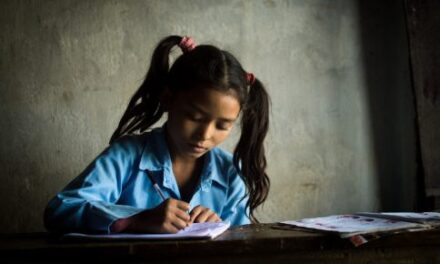 Interview with Freda Wolfenden,
Interview with Freda Wolfenden,
Chair of Conference Committee and Deputy Chair of UKFIET Executive Committee
I’ve spent most of my professional life teaching in various contexts and drawing motivation from my work with learners, so I’m particularly excited that the focus for this year’s UKFIET conference is teaching and learning. As the global education discourse has shifted to issues of quality, it is highly pertinent that we consider how curriculum, pedagogy and assessment can be transformed to move towards more productive and enjoyable learning for all and deliberate on approaches that enable marginalised citizens to participate in learning. The challenges are familiar and remain stubbornly immense, illustrated by the recent ASER data from India which reported that, for example, the proportion of children in class 3 who are able to read at least class 1 level text has gone up slightly in 2016, but only to 42.5%, from 40.2% in 2014.
Learning in a complex world
Learning needs to be future oriented; large numbers of current jobs are highly likely to become automated, climate change will increasingly have implications for multiple aspects of our daily lives, and with increasing migration how can we ensure learner progression and respect for cultural differences? The underlying theme from these global drivers is complexity – how can learning be designed to enable engagement by all in decisions around these issues rather than exacerbate inequalities? Recent global events illustrate the increasing need to ensure that there is dialogue and interaction across constituencies and boundaries whether geographic, practice or sector.
Teaching and learning for sustainability
Not only do we need to equip learners with critical skills but the ways in which we organise teaching and learning need to balance the progress of individual learners with sustainable change in the system. Moving away from short-term interventions to system transformation will demand both time and new performance frameworks based on equity and sustainability across all levels of education systems. What promising innovations are working in this space? How might they be scaled up? What is the role of teachers, education officials or civil society actors in these activities?
These are but a small snapshot of the issues I hope we can explore and reflect on during UKFIET 2017. We’re deliberately adopting a very broad positon on ‘sustainable development’ and I hope we will interrogate how ‘education for sustainable development’ is understood in different spaces. What does it mean, for example, in contexts where there is little state presence?
Ideas for 2017 conference
For the 2017 conference, I’m looking forward to proposals from a wide global constituency and, most critically, enabling the facilitation of dialogue and collaborative development of ideas across boundaries. What can practitioners harness, for example, from work on big data in education, or from analysis of policy mediation in different contexts? What can practitioners tell those involved in research and policy about the experiences and issues of concern to students, teachers, parents and community stakeholders? How can we capture productive learning emerging from our experiences of managing challenges on the ground and how can these inform future research directions and policy? For example, how and what can we learn about cross-cultural professional learning from interactions between experts in refugee camps? How can we move from the specific to the generic, and is this desirable?
I look forward to welcoming you to these discussions at UKFIET in September.

